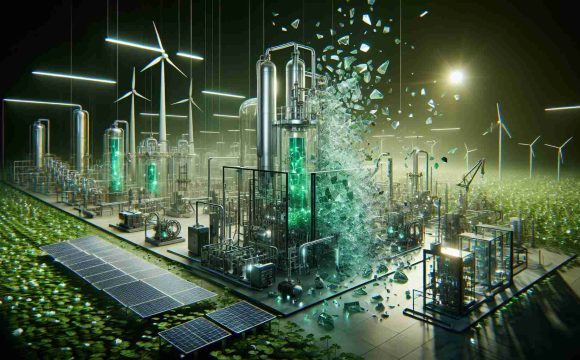UK Prime Minister Keir Starmer has embarked on a pivotal visit to Norway, where significant strides in green energy collaboration will be unveiled. During his two-day trip to northern Europe, Starmer aims to announce a groundbreaking green energy deal that promises to fortify economic growth and mitigate energy price volatility—an issue that has been particularly pronounced since the 2022 Russian invasion of Ukraine.
Starmer’s agenda includes a tour of a cross-border carbon capture facility, as well as discussions with Norwegian Prime Minister Jonas Gahr Støre regarding the anticipated energy partnership, which is projected to be formalized in spring 2024. This alliance seeks to leverage the UK’s exceptional capabilities in carbon capture technology, with an emphasis on revitalizing traditional industrial regions.
Furthermore, Starmer underlined the deal’s importance for enhancing the UK’s energy security, minimizing dependence on unpredictable international energy markets. His visit coincides with recent approvals for carbon removal initiatives in northeast England, where energy giants BP and Equinor are set to invest. Additionally, a floating offshore wind farm known as Green Volt, which is backed by Norwegian and Scottish companies, aims to serve approximately one million homes by 2028.
As Starmer and Støre engage in discussions, they are also preparing to attend a defense summit in Estonia, highlighting the ongoing commitment to regional security and collaboration amidst evolving geopolitical challenges.
UK-Norway Green Energy Alliance: A Transformative Step Towards Energy Security
UK Prime Minister Keir Starmer’s Strategic Visit to Norway
UK Prime Minister Keir Starmer has embarked on a pivotal two-day visit to Norway, aimed at solidifying a groundbreaking green energy partnership between the UK and Norway. This collaboration seeks to address urgent energy challenges and fortify economic growth through innovative environmental initiatives.
Key Highlights of the Visit
1. Groundbreaking Green Energy Deal:
During his visit, Starmer is set to announce a landmark agreement focused on green energy. This initiative is designed to enhance economic resilience while significantly reducing energy price volatility, which has surged in the wake of the 2022 Russian invasion of Ukraine.
2. Carbon Capture Technology Tour:
One of the key events is a tour of a state-of-the-art cross-border carbon capture facility. This technology is crucial for the UK’s goal to become a leader in carbon capture and storage (CCS), particularly in revitalizing its traditional industrial regions.
3. Bilateral Discussions with Norwegian Leaders:
Prime Minister Starmer is engaged in discussions with Norwegian Prime Minister Jonas Gahr Støre to formalize this energy partnership, expected to be finalized in spring 2024. This cooperation will focus on maximizing the UK’s advancements in CCS technology, which is vital for meeting carbon neutrality goals.
Trends and Innovations in Green Energy
– Investment in Carbon Removal Initiatives:
In line with this green energy strategy, northeast England has recently approved multiple carbon removal projects. Noteworthy investments from energy giants BP and Equinor are set to play a key role in this transformational shift.
– Floating Offshore Wind Farms:
The initiative also includes the development of the Green Volt, a floating offshore wind farm project backed by Norwegian and Scottish investors. Once operational by 2028, it is expected to power approximately one million homes, contributing significantly to the UK’s renewable energy resources.
Security and Strategic Implications
Starmer’s visit is not solely focused on energy; it coincides with a defense summit in Estonia, reflecting a commitment to improved regional security amidst shifting geopolitical landscapes. The alignment of energy security with national defense underscores the intertwined nature of these critical areas.
Conclusion: The Road Ahead
The strategic partnership between the UK and Norway represents a crucial advancement in international cooperation on energy security and environmental sustainability. By investing in innovative technologies and renewable energy sources, both countries are poised to address both current and future energy challenges effectively.
For more insights on sustainable energy initiatives, visit UK Government’s page.






